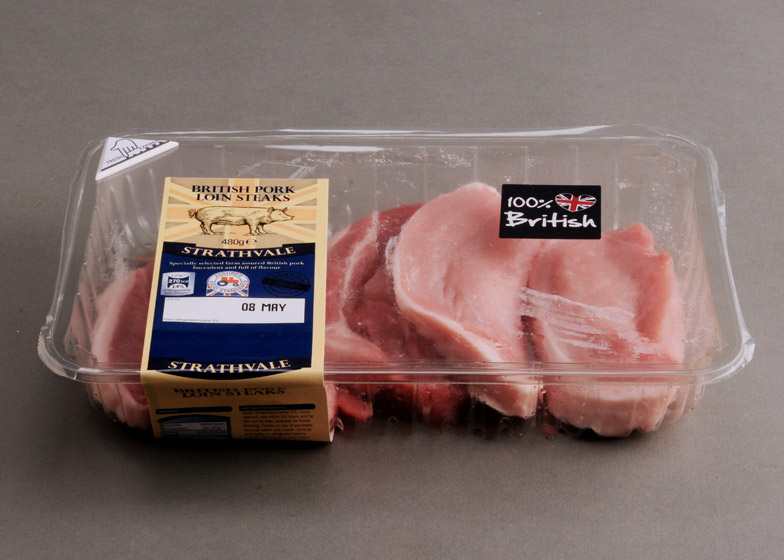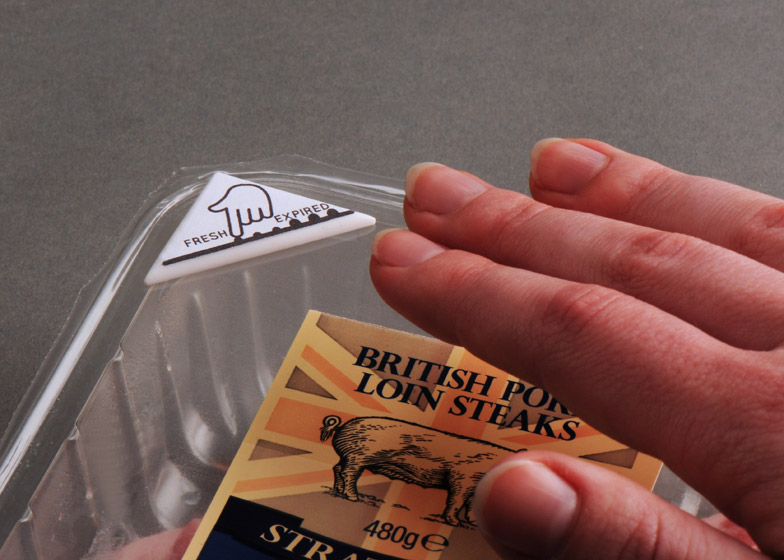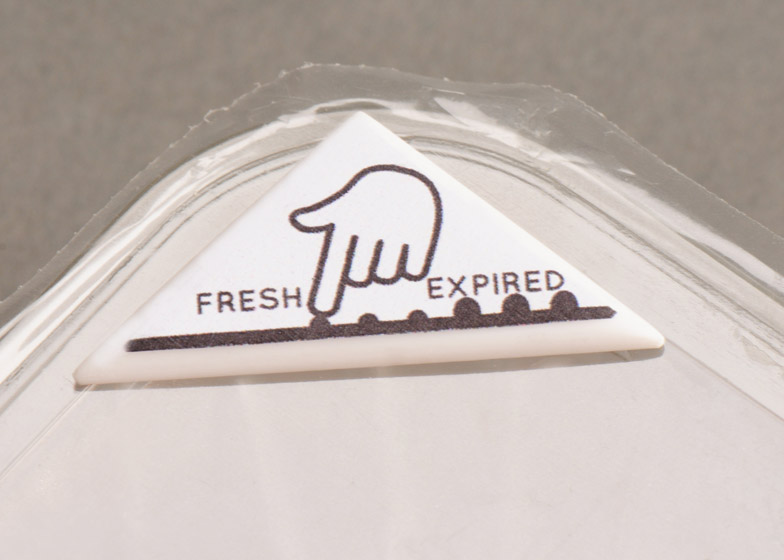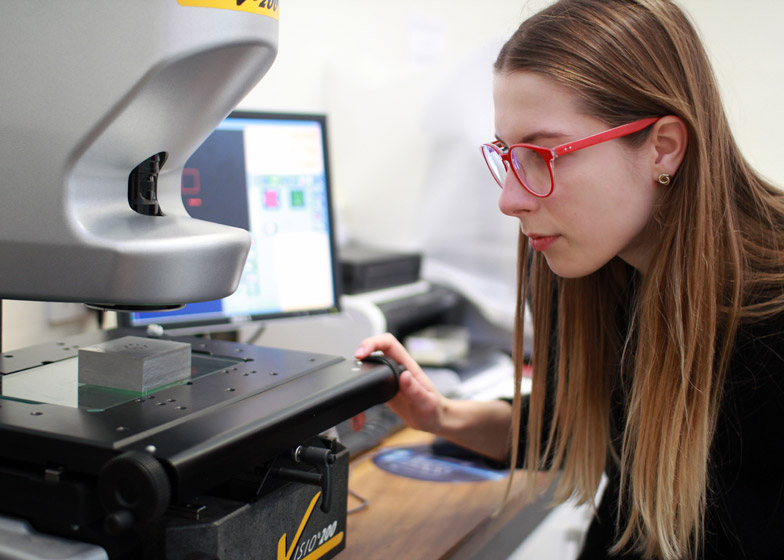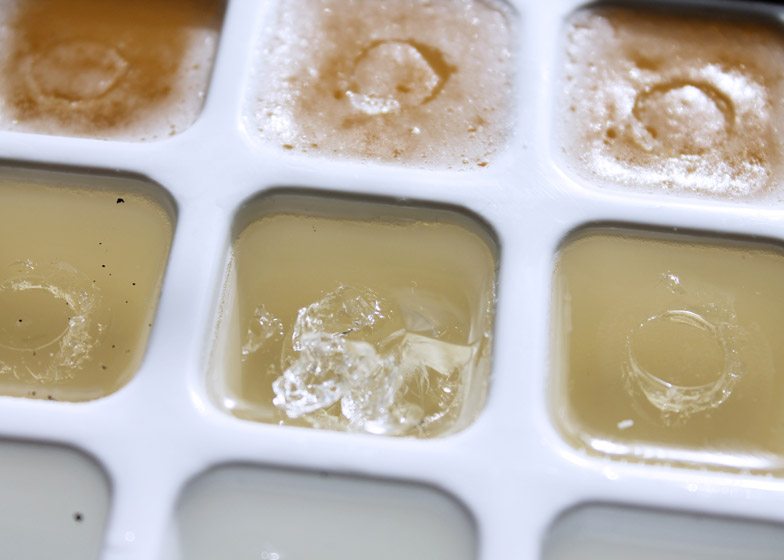News: Solveiga Pakstaite, an industrial design student from Brunel University, has won the UK James Dyson award with Bump Mark – an expiry label that decays to tell you when food is no longer safe to eat (+ slideshow).
Described as a "bio-reactive food label", Bump Mark is designed as a tactile labelling system that could help cut wastage by replacing static expiry dates with a more organic marker that tells consumers if food has gone off.
Each Bump Mark starts as a smooth label, which is made predominantly of gelatine. Over time, the gelatine begins to break down, altering the surface of the label and creating "bumps" that can be felt by a person running their fingers over the top.
"Because it is a protein, it decays at the same rate as protein-based foods like pork, milk and cheese," explained Pakstaite. "And the gelatine can be adapted to match the expiry period of the food by altering the concentration."
"So, the higher the concentration, the longer the gel will stay solid. The label simply copies what the food in the package is doing, so the expiry information is going to be far more accurate than a printed date."
Pakstaite has developed over 20 prototypes to test the concept, which Dyson said could save the average UK family more than £700 a year on wasted food.
"The UN food report estimates that 100 million tonnes of food is wasted and in the UK, residents throw away 7 million tonnes of food each year," said the James Dyson Award organisation. "This is a project which is certainly needed to try and prevent these terrifying numbers increasing."
Dezeen Book of Interviews: James Dyson features in our new book, which is on sale now
Created by British engineer James Dyson, the award is an annual prize granted to students who are working on innovative design engineering projects.
UK winner Pakstaite will receive £2,000 to further develop her prototype, and will progress to the international stage of the award. The international winner will receive £30,000, with an additional £10,000 awarded to their university department.
The Gravity 3D drawing tablet by a team of students from the Royal College of Art (RCA) was among four other projects shortlisted for the UK leg of the award.
Also on the shortlist was Bruise by Dan Garret, also from the RCA – an injury detection suit for disabled athletes with loss of sensation with a pressure sensitive film that changes colour on impact – and Spokefuge, a low-tech centrifuge alternative used to diagnose anaemic patients in rural developing countries, designed by Jack Trew from Birmingham City University.
An inflatable incubator designed to try and decrease the number of premature child deaths in refugee camps called MOM, by James Roberts from Loughbourough University is the final project on the list.

